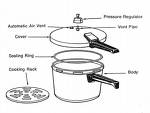 I was pleased and interested to see that a former SSEES MA student had revised and published some the research she did for a dissertation on decommunization in the Baltic with an American academic co-author in the latest issue in the Journal of Communist Studies and Transition Politics. In the article her comparative analysis is partly reworked into a defence of co-author John P. Moran’s theory of the causes and timing of different states’ decommunization policies. Moran’s ‘pressure cooker’ model, first outlined in 1994, argues that decommunization is a product of psychological desires for revenge against communist oppression, but that it is relieved when there are valves for the release of pressure through ‘voice’ (protest, reform, some element of free discussion) or ‘exit’ (mass emigration – which, it seems, only applies to East Germany).
I was pleased and interested to see that a former SSEES MA student had revised and published some the research she did for a dissertation on decommunization in the Baltic with an American academic co-author in the latest issue in the Journal of Communist Studies and Transition Politics. In the article her comparative analysis is partly reworked into a defence of co-author John P. Moran’s theory of the causes and timing of different states’ decommunization policies. Moran’s ‘pressure cooker’ model, first outlined in 1994, argues that decommunization is a product of psychological desires for revenge against communist oppression, but that it is relieved when there are valves for the release of pressure through ‘voice’ (protest, reform, some element of free discussion) or ‘exit’ (mass emigration – which, it seems, only applies to East Germany).
The article argues that this ‘pressure cooker’ approach can incorporate all manner of more recent approaches into a kind of Grand Theory of comparative decommunization in CEE – Williams, Szczerbiak and Fowler stress on the use of decommunization as tool to fight against post-communist successor parties in the politics of present; Nedelsky’s arguments about regime legitimacy as a product of national development etc. These, constitute ‘switches’ on the giant pressure cooker of communist/post-communist political systems.
The metaphor of the ‘pressure cooker’ and its extension into a discussion of ‘switches’ ‘fuel’ and sundry other specifications is also slightly odd, as it is not really developed or explained in any clearer, more academic language. The net effect of this stress on 'psychological pressure' is to obscure the the playing out of factors that other analyses, such as Williams, Szczerbiak and Fowler’s more sophisticated and carefully comparative ‘politics of the present’ article explain more systematically. Obviously, there is (or, at least, was) some kind of social/social-psychological demand for decommunization in CEE after 1989, which may in some sense have 'driven' the whole process (although one could equally well talk in terms of the constraining effects of framing, discourse or 'rhetorical entrapment'), but communist societies and political systems really cannot, I don't think, be well understood as a Heath Robinson-esque piece of kitchenware.
What does interestingly emerge, however, is that the ‘voice’ allowed by liberal communist regimes was counter-acted by the emergence from such regimes of a large reformed communist parties as the main force on the social democratic centre-left – a tempting target for decommunization by political competitors. Indeed, one might almost argue that far from releasing pressures for anti-communist revenge, ‘voice’ under later communism allow the formation of an anti-communist proto-right. (Williams, Szczerbiak and Fowler’s stress on collective action problems and the need to build minimum winning coalitions extending from right to centre is rather overlooked but adds a further complication, as it suggests the post-communist 'target' will not always be squarely hit ).
This is an interesting attempt to rethink typologies of decommunization measure, but not fully convincing as ‘civil adjudication’ is not exercised against individuals, but in most cases by them against the state – it is state and collective farm property that is returned and only rarely the property of individuals associated with the regime. (Land and buildings subject to restitution may of course have a new user but these, I suspect, were rarely favourites of the regime, although in the Baltic the fact that new occupants were more likely to be ethnic Russians may conceal that). Moreover, it assumes that in the context of regime changes civil and criminal law can be meaningfully and neutrally applied. Leaving aside the issue of which laws applied under communism, that is how legal and legitimate communist regimes can be considered to be – something which has to be politically determined through the passing of restitution laws, statutes of limitation etc - this assumes an efficient professional judiciary not subject to political pressure, which can scarcely be said to have existed. The quotes from de Tocqueville’s Democracy in America rather underline this – I am a huge admirier of US political science, but American academics are forever returning to Madision, Jefferson and de Tocqueville and the early American Republic as reference point for the most unlikely and removed of situations in ways I really find very puzzling. No doubt de Tocqueville has also been name checked in discussions on Iraq.
E. Jaskovska and J.P.Moran (2006) ‘Justice or Politics? Criminal, Civil and Political Adjudication in the Newly Independent
J.P. Moran (1994) ‘The Communist Torturers of
N. Nedelsky (2004), ‘Divergent responses to a common past: Transitional justice in the
No comments:
Post a Comment